Truthout is an indispensable resource for activists, movement leaders and workers everywhere. Please make this work possible with a quick donation.
Immigrants from Mexico and Central America seeking asylum in the United States frequently end up at border shelters in Tijuana, Mexico. They stay in them for weeks as they wait for the U.S. government to approve or deny their applications.
Most of the refugees get sick during their journeys due to insufficient food, a lack of clean water and poor sanitation at camps and shelters along the way. But perhaps their biggest health problem is depression and anxiety: They have suffered violence and been threatened by gangs and left behind everything they know in the world.
Volunteer health care workers from Southern California recently visited the Movimiento Juventud 2000 (Youth Movement 2000) shelter in Tijuana, and spent the day treating the migrants there. KHN’s Heidi de Marco captured the scene.
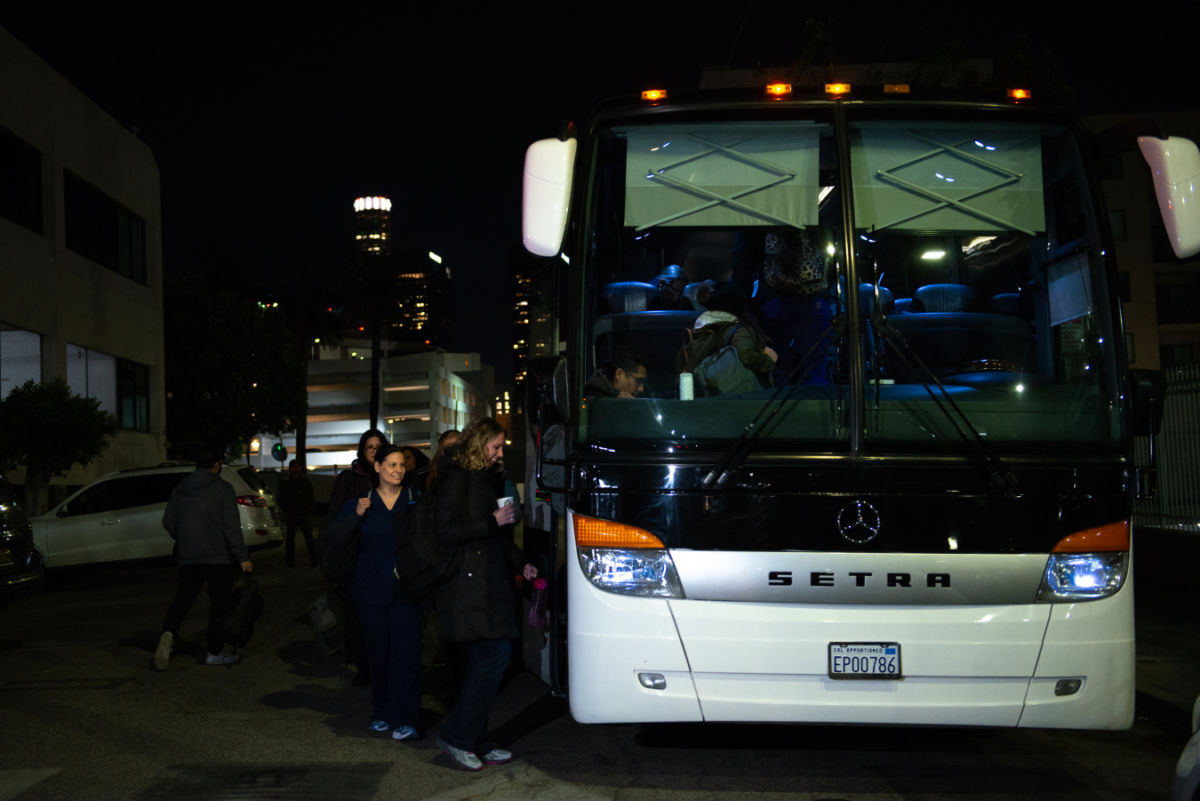
Volunteer doctors, nurses and other health care professionals board a bus in downtown Los Angeles before dawn to ride to the migrant shelter in Tijuana. They spent the day there dispensing free health care, supplies and advice to shelter inhabitants.
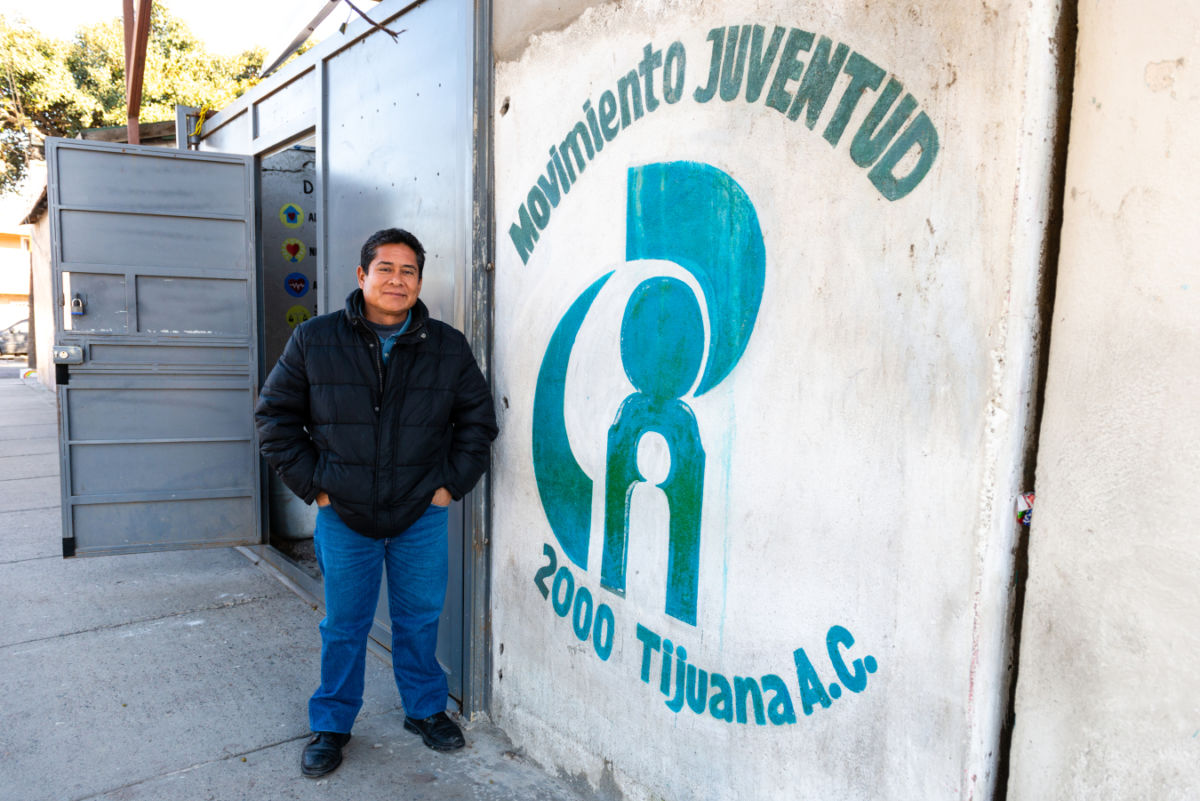
For about 25 years, the shelter primarily housed Mexicans deported from the United States. Its director, Jose Maria Garcia Lara, shown here, recently opened its doors to asylum seekers and other migrants fleeing violence and economic deprivation in Central America. The biggest health problem they face, Lara says, is depression: “The people who are coming here are leaving their homes. They are leaving a lifetime.”
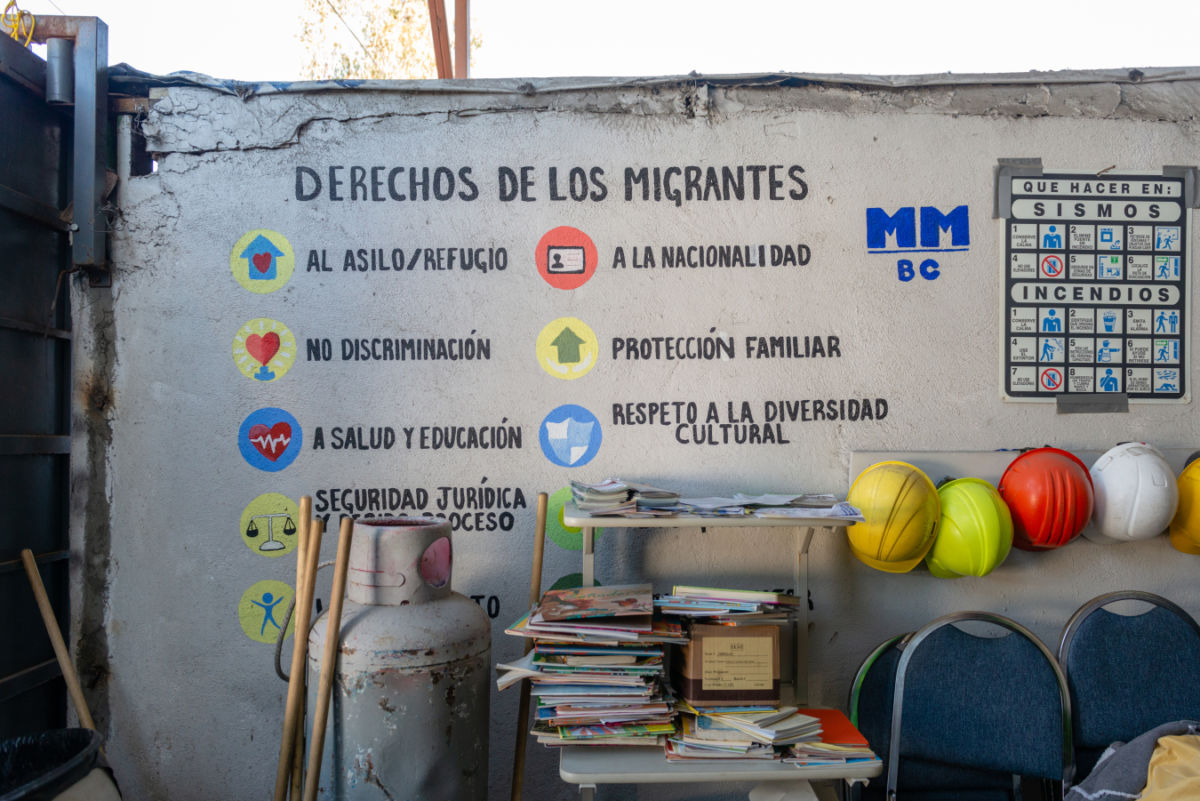
A mural inside the shelter explains the rights of the migrants dwelling there. It says they have the right to safe shelter; health care and education; freedom from discrimination; due process under the law; protection for their families; and respect for cultural diversity.
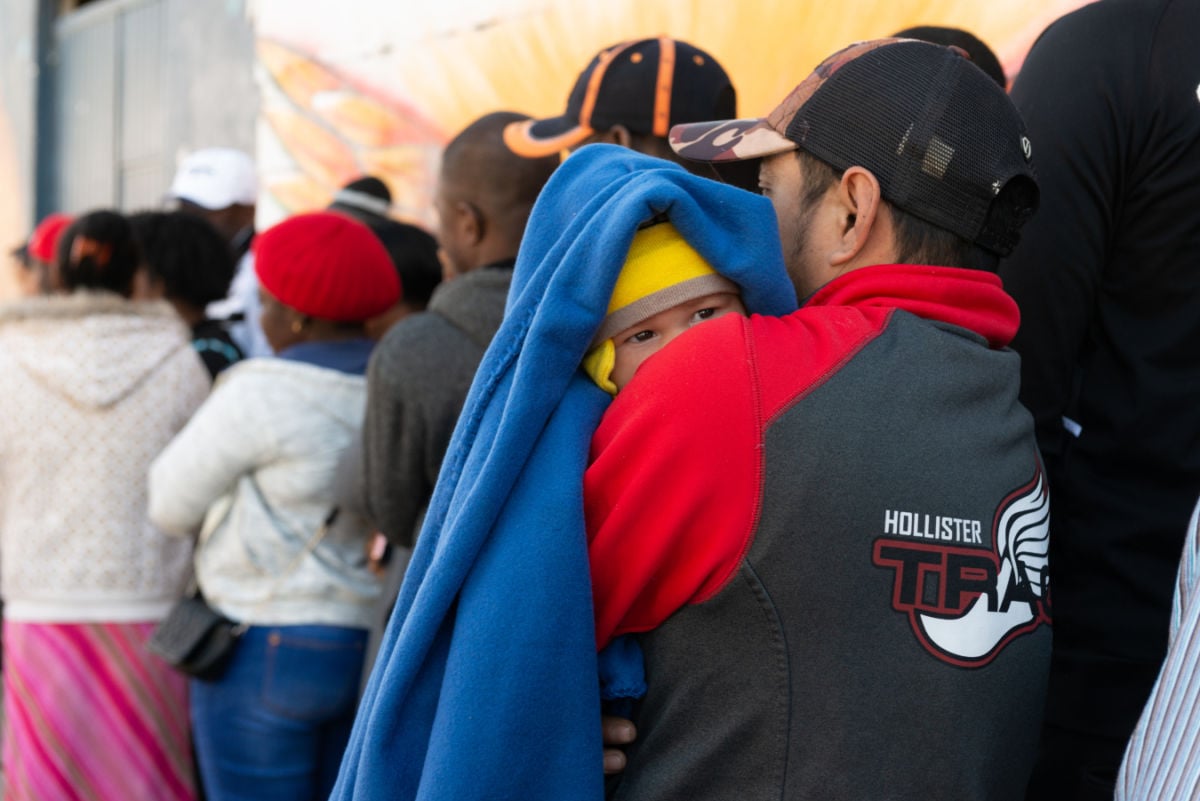
Jose Manuel Salinas, an asylum seeker at the shelter, holds his friend’s baby as he waits to be seen by a nurse. He was fighting a cough that had worsened since his arrival a month earlier. Inhabitants of the camp do not get regular health care. One doctor and two nurses visit once a week, but can spend only five or 10 minutes with each migrant in need of care.

Volunteer health workers at the shelter set up folding tables, where they offered help for both physical and psychological ailments. They provided first aid as well as pediatric and dental care, and they took glucose, blood pressure and pulse readings.
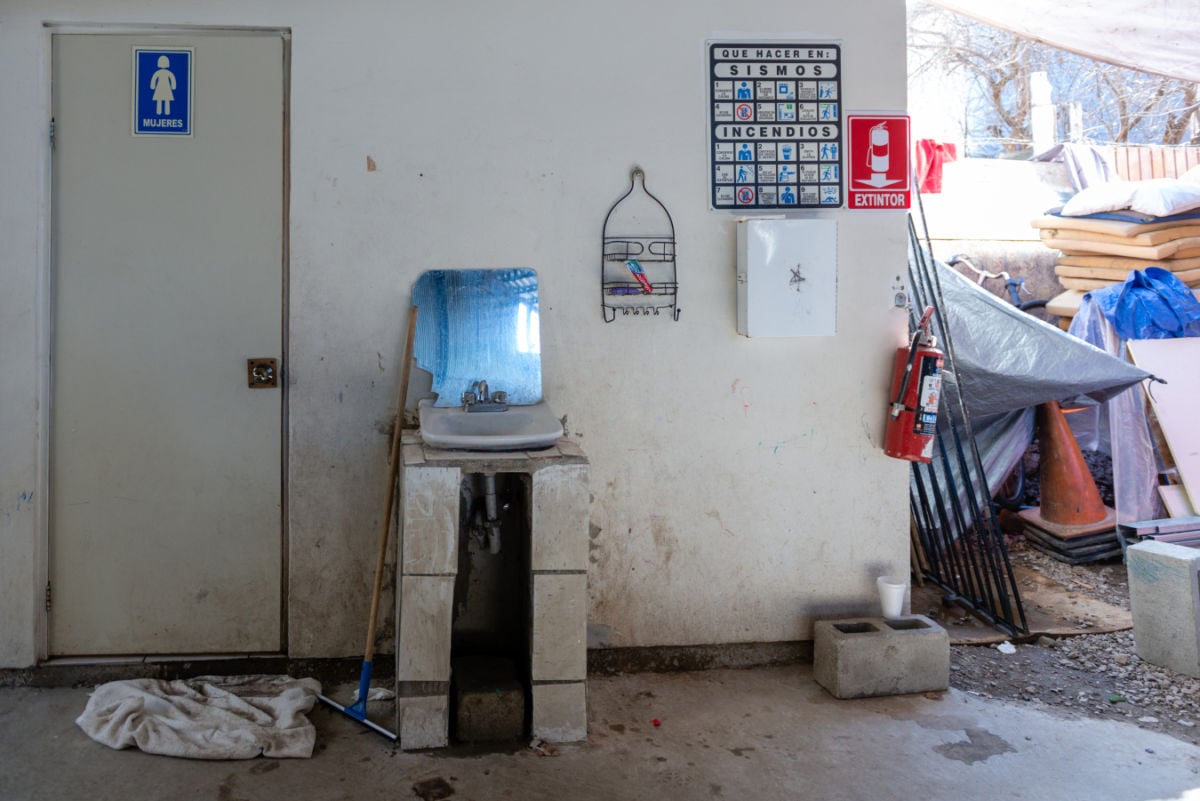
The shelter, which houses up to 150 people, has only one bathroom for men and one for women. Conditions are cramped, making the migrants susceptible to illness if they are not sick already.
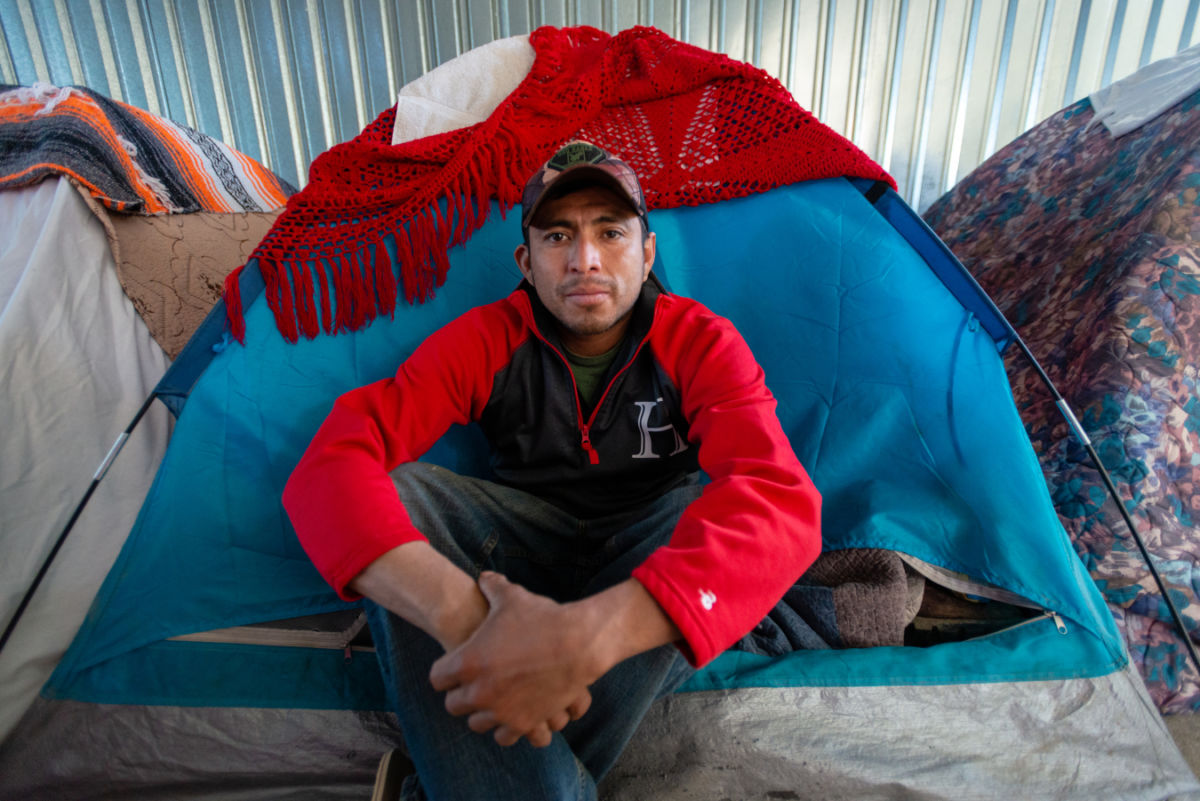
Jose Manuel Salinas is living temporarily in a tent inside the shelter. He says he walked and hitchhiked for a month from his home in Acapulco. “You can’t live in the state of Guerrero,” says Salinas, 31. “There’s too much violence, and the truth is the salary we make isn’t enough to feed my family.”
This KHN story first published on California Healthline, a service of the California Health Care Foundation.
A terrifying moment. We appeal for your support.
In the last weeks, we have witnessed an authoritarian assault on communities in Minnesota and across the nation.
The need for truthful, grassroots reporting is urgent at this cataclysmic historical moment. Yet, Trump-aligned billionaires and other allies have taken over many legacy media outlets — the culmination of a decades-long campaign to place control of the narrative into the hands of the political right.
We refuse to let Trump’s blatant propaganda machine go unchecked. Untethered to corporate ownership or advertisers, Truthout remains fearless in our reporting and our determination to use journalism as a tool for justice.
But we need your help just to fund our basic expenses. Over 80 percent of Truthout’s funding comes from small individual donations from our community of readers, and over a third of our total budget is supported by recurring monthly donors.
Truthout has launched a fundraiser to add 432 new monthly donors in the next 7 days. Whether you can make a small monthly donation or a larger one-time gift, Truthout only works with your support.
